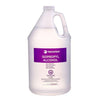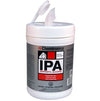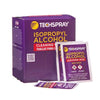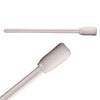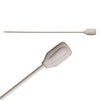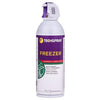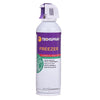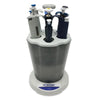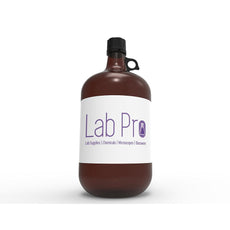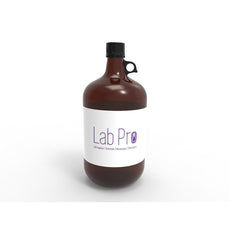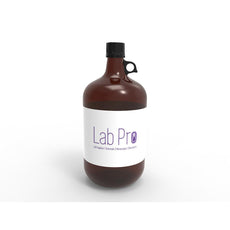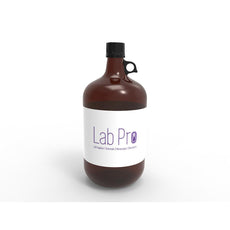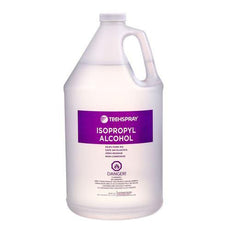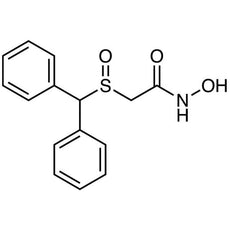- No products in the cart.
Menu
Start typing to see products you are looking for.
Start typing to see products you are looking for.
Browse Categories
-
PPE Apparel
Masks
-
 KN95 Respirator Mask, 4 layers, Box of 50 -LP-KN95-001BOX50
$79.00
KN95 Respirator Mask, 4 layers, Box of 50 -LP-KN95-001BOX50
$79.00
-
 Harley L-188 N95 Particulate Respirator Mask, Box of 20 - LP-L188-N95
$36.00
Harley L-188 N95 Particulate Respirator Mask, Box of 20 - LP-L188-N95
$36.00
-
 Lab Pro Mask KN95 (K-N95) Pack of 50 - LP-MASK2-K95 - 40% OFF
Lab Pro Mask KN95 (K-N95) Pack of 50 - LP-MASK2-K95 - 40% OFF
$125.00$75.00 -
 Lab Pro 3ply Earloop Disposable Mask (Non-Surgical) (Box of 50) - 84% OFF
Lab Pro 3ply Earloop Disposable Mask (Non-Surgical) (Box of 50) - 84% OFF
$57.00$9.00
-
-
Chemicals
-
Wipes
-
Microscopes and Lighting
-
Hand Tools
Hand Tools
-
 Excelta Scissors - 346B - Micro Self-Opening - Straight - SS - Blade Length .38" - 346B
$32.16
Excelta Scissors - 346B - Micro Self-Opening - Straight - SS - Blade Length .38" - 346B
$32.16
-
 Excelta Scissors - Straight Slim Blade - SS - Blade Length 1.25" - 271
$9.83
Excelta Scissors - Straight Slim Blade - SS - Blade Length 1.25" - 271
$9.83
-
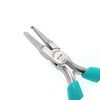 Excelta Pliers - Forming Dog Leg - Carbon Steel - 907-89B
$320.73
Excelta Pliers - Forming Dog Leg - Carbon Steel - 907-89B
$320.73
-
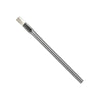 Excelta Brushes - 213A-N - Cleanroom Safe - Straight - SS/Statig09 Bristles - 213A-N
$17.58
Excelta Brushes - 213A-N - Cleanroom Safe - Straight - SS/Statig09 Bristles - 213A-N
$17.58
-
-
Gloves
Powder Free Nitrile Gloves
-
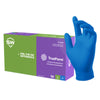 TrueForm Powder-Free Nitrile Exam Gloves Royal Blue (Small), Case of 1000 (TF-050-095-RB) (10 boxes 100/Box) - N301342
TrueForm Powder-Free Nitrile Exam Gloves Royal Blue (Small), Case of 1000 (TF-050-095-RB) (10 boxes 100/Box) - N301342
$199.00$99.00 -
 PowerForm Nitrile Exam Gloves Black (Medium), Case of 1000 (PF-90BK)(10 boxes 100/Box) - N716883
$237.00
PowerForm Nitrile Exam Gloves Black (Medium), Case of 1000 (PF-90BK)(10 boxes 100/Box) - N716883
$237.00
-
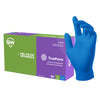 TrueForm Powder-Free Nitrile Exam Gloves Royal Blue (Medium), Case of 1000 (TF-050-095-RB) (10 boxes 100/Box) - N301343
TrueForm Powder-Free Nitrile Exam Gloves Royal Blue (Medium), Case of 1000 (TF-050-095-RB) (10 boxes 100/Box) - N301343
$199.00$99.00
-
-
Swabs and Applicators
Foam Tipped Swabs
-
ESD & Static Control
ESD & Static Control
-
Lab Equipment
-
Pipettes
-
Furnaces and Ovens
Furnaces and ovens
-
All Products
- Services New
-
Industries Served
- Brands
-
Information
-
Blog
-
All blogs
- Aerospace
- Calibration of Lab Equipment
- Chemicals and Solvents
- Cleanroom and Critical Environment
- Electric Battery Labs
- ESD Safety
- Lab Consumables
- Lab Glassware and Glassware Equipment
- Lab Pro’s Top 5
- Laboratory Equipment
- Laboratory Safety & Lab Efficiency
- Medical Adhesives
- Medical Device Industry
- Microscopes, Lighting & Inspection
- News
- Our Blog
- Pipettes
- PPE and Safety Apparel
- Press Release
- Science Education
- Solar Energy Labs
- Sustainable & Eco-Conscious Lab
- Swabs
- Tweezers and Cutters
- Ultrasonic Cleaning
- VMI for Lab Supplies
-
All blogs
- Contact
- All Categories
- all products
- Determination Of Water Hard- Ness Ap Chemistry Kit -IS8020
Determination Of Water Hard- Ness Ap Chemistry Kit -IS8020
$29.99
SKU: IS8020
Aldon,Classic AP Chemistry
Warning:
California prop 65
Description
In this experiment the indicator eriochrome black T (EBT) is used to signal the presence of ions in the water sample. EBT binds with free metal ions in the water to form a pink complex. EDTA has a stronger affinity for the metal ions than EBT so when EDTA is added it replaces the EBT and the EBT returns to its blue, uncomplexed color. The blue color is used as the end point in the titration. A sample of tap water is treated with EBT indicator. If the indicator turns from blue to pink, metal ions such as calcium and magnesium are present. To determine the concentration of ions present, the sample is titrated with a known molar concentration of EDTA.







